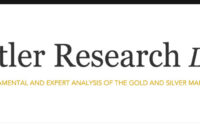Recession Calls Grow, Mnuchin on Inflation Threat: Qatar Update
(Bloomberg) — Delegates at the second annual Qatar Economic Forum, from Tesla Chief Executive Officer Elon Musk and Nouriel Roubini to Atlas Merchant Capital’s Bob Diamond and StanChart’s Bill Winters, warned the US was heading toward a recession.
In a wide-ranging interview, Musk also left doubts about his commitment to a $44 billion takeover of Twitter. Qatar’s $450 billion wealth fund has backed that bid, and its CEO said Tuesday he believes in Musk’s leadership.
Later, former Treasury Secretary Steven Mnuchin said inflation in the US can be brought under control if energy prices settle down and the Federal Reserve follows through on its pledge to continue raising interest rates.
Also Tuesday, Exxon Mobil Corp. said it is investing in Qatar’s $29 billion North Field East project to boost Doha’s gas exports, joining other western energy firms. The Gulf state, among the world’s biggest LNG exporters, is one of few nations that can substantially replace Russian gas supplies to Europe — but the project will start operating only in early 2026.
NOTE: Qatar’s Ministry of Commerce and Industry, Qatar Investment Authority and Investment Promotion Agency Qatar are the underwriters of the Qatar Economic Forum, Powered by Bloomberg. Media City Qatar is the host organization.
Key Highlights:
- Mnuchin Says Energy Markets, Fed Key to Taming Inflation in US
- Five Takeaways From What Elon Musk Said at Qatar Economic Forum
- Musk Says Bots Are a Problem for Twitter Deal, Not China
- Elon Musk Says Tesla Job Cuts Will Reduce Workforce by 3.5%
- Thiam Says He Turned Down Offers After Credit Suisse for SPAC
- Exxon CEO Warns Oil Markets May Be ‘Tight’ for Up to Five Years
- Kuwait State Oil Firm Says There’s $30 War Premium on Oil Prices
Mnuchin Says Energy Markets, Fed Key to Taming Inflation in US (9:20 p.m. Doha)
“If we can stabilize the energy market, I believe, and the Fed does their job, we’ll have inflation under control,” Mnuchin said at the forum. “If we don’t, we have a big problem.”
He said global leaders, including from the US and China, should concentrate on trying to secure a cease-fire in Ukraine, which could begin to calm energy prices. On the Fed, he said he had “a lot of confidence” in Chair Jerome Powell and backed the central bank’s move last week to raise interest rates by 75 basis points and signal a similar move for its next meeting.
Qatar Central Bank Won’t Ditch Peg (4:30 p.m. Doha)
Qatar’s central bank has diversified its portfolio to include assets outside the US and remains confident it has the tools to contain inflation while maintaining its peg to the dollar.
Governor Sheikh Bandar bin Mohammed Al-Thani said the central bank’s reserves of over $57 billion have been used to invest in “different major currencies,” with capital allocated into Europe and the Far East region, alongside the US.
“This is our strategy: always to diversify not to depend on one currency in our portfolio,” he said at a panel. “We will continue to do so.”
Roubini’s Base Line Scenario Is Hard Landing (4 p.m. Doha)
“Unfortunately, this time around, we have both demand factors and supply factors that are causing stagflation and high inflation,” Roubini said on a panel. History suggests that whenever inflation in the US is above 5% and unemployment is below 5%, “any attempt by the Fed to essentially raise rates to fight inflation causes a hard landing rather than a soft landing,” he said.
Europe, the Euro-zone and the UK are even more fragile than the US, he said, adding that the European Central Bank is “in as much of a pickle as the Fed given the exposure to Russia, given the exposure to China.” A series of negative factors including de-globalization, aging of populations, migration restrictions, weaponizing of the US dollar and climate change could lead to a depression, he said.
Earlier on Tuesday, Roubini forecast a US recession by the end of the year. “We’re getting very close,” as measures of consumer confidence, retail sales, manufacturing activity and housing are all slowing down sharply while inflation is high, he said on Bloomberg TV.
Roubini’s comments were echoed by delegates at the forum. Musk said “a recession is inevitable at some point,” while Atlas Merchant Capital founding partner Bob Diamond warned a US recession was “almost unavoidable.” A cooling of the economy is part of the economic cycle and central banks should continue to act to stem inflation, he said.
The Fed’s rate hike was the “correct move” and another 75 basis point increase in July is “probably appropriate,” Diamond said. “The more the Fed acts now, the more likely it is to be quick or short, not deep and longer.”
The comments come after Goldman Sachs economists cut their US growth forecasts and warned that the risk of recession is rising. The outlooks will stoke fears of a hard landing for the world’s biggest economy as the Fed jacks up interest rates to counter the fastest pace of inflation in decades.
StanChart’s Bill Winters joined the growing chorus later on Tuesday. “I think this inflation is quite bad, it’s intransigent, it’s not transitory, and the consequences will be recession.” Any recession is likely to last “a couple of quarters,” he added.
“There’s a silver lining, which is that the financial system is strong, and when you have a downturn in an economic cycle with a strong financial system it tends not to be amplified,” Winters said. “I think it’s very unlikely we’ll have a financial crisis.”
QIA Has No Interest in Cryptocurrencies (3:20 p.m. Doha)
Qatar’s wealth fund isn’t interested in investing in cryptocurrencies, though it believes in the underlying blockchain technology, according to CEO Mansoor Al Mahmoud.
After a turbulent week that saw Bitcoin plunge below the $20,000 level for the first time since 2020, some market watchers are pointing to possible signs that prices have bottomed — at least for now.
The Qatari fund won’t invest more in Russia, though it still has some holdings in the country, Al Mahmoud said. It’s also seeking partners to invest in African infrastructure, and continues to be optimistic about Europe in the long-term, he added.
Kazakh Leader Seeks to Diversify Energy Exports (3 p.m. Doha)
Kazakhstan, one of the Kremlin’s few remaining international allies, values its ties with Vladimir Putin yet seeks to diversify energy and trade export routes to reduce reliance on transits via Russia, President Kassym-Jomart Tokayev said.
Putin “is a staunch ally of Kazakhstan, and as President of Kazakhstan, of my country, I’m very much pleased having close relationships with Putin,” Tokayev said. While Kazakhstan’s oil, which is mostly exported via Russia, “is still in demand on the international markets” amid energy sanctions against the Kremlin, “we need to think how we could diversify our routes,” he said.
Egypt Sees Green-Financing Challenges for Developing Nations (2 p.m. Doha)
Egyptian Finance Minister Mohamed Maait said international financial institutions need to take into account the challenges developing countries face in enacting environmentally-friendly policies.
Egypt’s push to issue the first green bond in the Middle East ended up costing the country more than if it had opted for traditional financing, Maait told a panel at the Qatar Economic Forum. The North African nation, which raised $750 million from the bond in 2020, hosts the COP27 climate summit in November.
Maait also said there’s a “limit” to what Egyptians can bear, after inflation hit its highest level in three years in May. With higher costs of living particularly affecting the more than 30 million Egyptians on lower incomes, the government “had to give a package to ease the pressure” that includes increases in salaries, pensions and cash-transfer assistance.
Exxon Invests in Qatar (12:50 p.m. Doha)
Exxon Mobil joined others, including ConocoPhillips, TotalEnergies SE of France and Italy’s Eni SpA, to invest in a project to boost Qatar’s gas exports.
The U.S. firm will take a 6.25% stake in the North Field East project, which is expected to start operating in early 2026. The expansion will increase Qatar’s LNG capacity to 110 million tons annually from 77 million, just as demand surges across the world.
Vitol Sees High Energy Prices Persisting (12:40 p.m. Doha)
Vitol Group CEO Russell Hardy said that global consumption of gasoline and jet fuel were still below 2019 levels and that the market could expect to see high prices for energy remain until demand for energy drops.
“There’s still two to three million barrels a day of demand to come back next year,” Hardy, whose company is the world’s biggest independent trader of oil and oil products, said. Prices for oil and oil products were likely to remain elevated so long as there was more consumption to come from the market, although fuel remaining so expensive risks demand destruction.
“The one thing that everybody’s concerned about is that runaway prices risk recessions,” he said.
Thiam Says Central Banks Need to Shock Markets (11:30 a.m. Doha)
Tidjane Thiam, the former CEO of Credit Suisse Group AG, said central banks will need to continue to shock markets to fight inflation. Asset prices have not yet reached a bottom given existing levels of inflation, the continuing impact from Covid-19, and geopolitical worries about China, he said.
While the market slump is negative for special purpose acquisition vehicles like his Freedom Acquisition I, the dislocation creates opportunities to invest, he said. Thiam said his vehicle looked at 75 companies before announcing Monday that it signed a letter of intent for a combination with Human Longevity, a company focusing on life sciences.
Read More: Thiam Says He Turned Down Offers After Credit Suisse for SPAC
Musk Says He can Balance China, Tesla, Twitter (10:10 a.m. Doha)
Musk said he doesn’t think there’ll be any issue balancing his Tesla interests in China with the future acquisition of Twitter Inc. The platform doesn’t operate in China and “China does not attempt to interfere with the free speech of the press in the US, as far as I’m aware,” he said in an interview.
Musk said there are still a few “unresolved matters” about Twitter, and is still waiting for a resolution on the matter of how many bots are on the social media platform. “There is the question of, will the debt portion of the round come together and then will the shareholders vote in favor,” he said.
The billionaire also said supply constraints are the biggest brake on Tesla’s growth, rather than competition from rival automakers. Jobs cuts at the electric-car maker will lead to a 3.5% reduction in headcount, he said.
EU Was ‘Unfair’ to Georgia, Premier Says (9:40 a.m. Doha)
Georgia considers it “unfair” for the European Union not to grant candidacy status to the country after recommending it to Ukraine and Moldova, Prime Minister Irakli Garibashvili said in an interview at the Qatar Economic Forum with Bloomberg Editor-in-Chief John Micklethwait.
The Caucasus nation “would be the first country to be granted the status” on the merits of complying with the EU’s requirements, and the bloc gave it to Ukraine and Moldova because of the situation created by Russia’s war, he said.
While Georgia supports Ukraine politically, it’s in a “very vulnerable” position and can’t impose national sanctions on Russia over the invasion, though it won’t let Russian companies use Georgian territory to bypass sanctions, Garibashvili said.
Georgia remains determined to join the North Atlantic Treaty Organization, but understands it must first resolve its territorial problems with 20% of Georgian territory under Russian occupation since a 2008 war, the premier said.
Namibia GDP May Double by 2040 on Oil Finds (8 a.m. Doha)
Namibia and its partners are “all aligned” on bringing country’s first two oil discoveries to production as soon as possible, Jennifer Comalie, chairperson of National Petroleum Corp. of Namibia, said in a Bloomberg TV interview Tuesday on the sidelines of the QEF.
TotalEnergies SE said in February it had made a “significant” oil discovery, weeks after Shell announced a find in the southwest African nation. “At peak, these two discoveries could bring $5.6 billion to a very small economy, doubling the GDP by 2040,” Comalie said, without giving details on when fields could start production or how much oil will be pumped.
©2022 Bloomberg L.P.
[ad_2]
Source link


